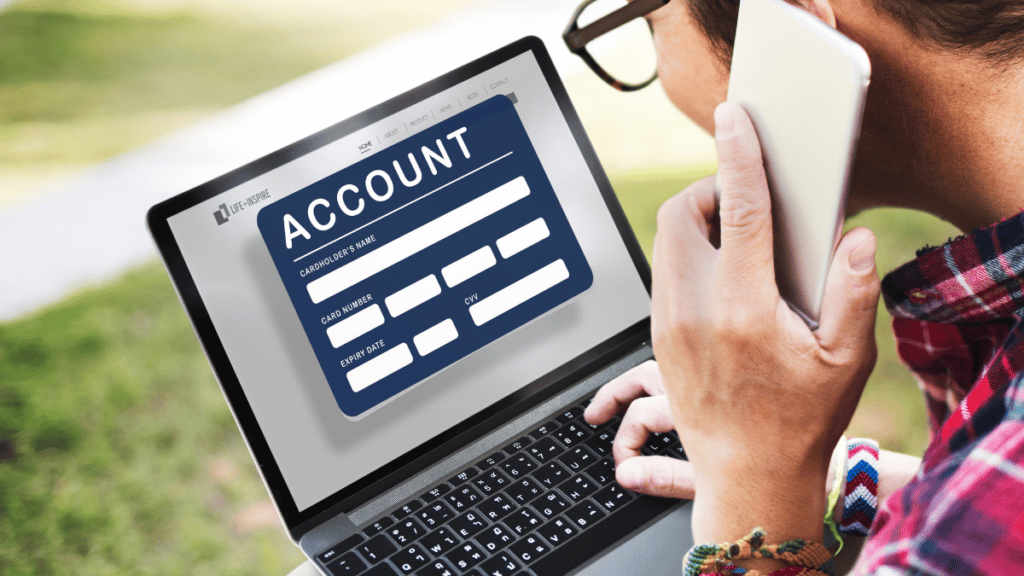Your credit score plays a big role in your finances; things like loan approvals and interest rates depend upon it. It’s not about luck or income—it’s about building smart, consistent habits. Whether you’re starting fresh or improving your score, these steps can help you take control.
Pay Every Single Bill on Time

This is one of the biggest factors in your credit score. Creditors report late payments, and that can drag your score down fast. Set up reminders, use autopay, or write due dates on your calendar. Paying utility bills, rent, and loans on time shows lenders you’re reliable. Even one missed payment can haunt your credit for years, so don’t let it slip.
💸 Take Back Control of Your Finances in 2025 💸
Get Instant Access to our free mini course
5 DAYS TO A BETTER BUDGET
Keep Credit Utilization Low

Your credit utilization ratio measures how much credit you’re using versus how much you have available. Aim to keep it under 30%, but staying below 10% is better. If your credit limit is $10,000, your balance shouldn’t go over $3,000. Pay down balances multiple times a month if you’re close to the limit. This helps you look financially responsible.
Monitor Your Credit Reports Regularly

Errors on credit reports aren’t uncommon, and they can impact your score. Check your reports from Equifax, Experian, and TransUnion every year—they’re free at AnnualCreditReport.com. Look for accounts you don’t recognize, incorrect late payments, or outdated information. Be sure to dispute any errors immediately to avoid unnecessary damage to your score.
Build Credit with a Secured Credit Card

If you’re starting from zero or rebuilding bad credit, getting a secured card is a smart move. It requires a deposit, which becomes your credit limit. Use it responsibly by making small purchases and paying the balance in full. After time, your responsible use can lead to offers for standard credit cards.
Don’t Close Old Accounts

One of the lesser-known factors in your credit score is the age of your accounts. Older accounts help establish a longer credit history. Even if you’re not using an old card, keep it open. Closing accounts can shorten your credit history average, which can slightly lower your score.
Avoid Applying for Too Much Credit at Once

Hard inquiries—when a lender checks your credit for a new application—can ding your score. One or two won’t hurt much, but multiple inquiries within a short time can add up. Only apply for credit when you genuinely need it. Too many “hard pulls” can make you look desperate for credit, which raises red flags for lenders.
Pay More Than the Minimum

Paying just the minimum due on your credit cards keeps you in debt longer and costs you more in interest. Even a slightly higher payment can make a difference over time. Paying down your balances faster also lowers your credit utilization, a key scoring factor. It’s a win-win for your budget and your score.
Request Credit Limit Increases Carefully

Increasing your credit limit can instantly lower your utilization ratio—if you don’t use it as an excuse to spend more. Call your card issuer and ask for a credit line increase. If approved, your ratio improves because your available credit grows without raising your debt balance. Just make sure you resist the urge to max it out!
Diversify Your Credit Mix

Lenders like to see you can manage different types of credit, such as credit cards, car loans, or student loans. Don’t open accounts just for credit mix, but aim for balance if the opportunity arises. For example, having a mortgage, an auto loan, and a credit card shows you can handle short-term and long-term debt responsibly.
Set Up Automatic Payments

Life gets busy, and it’s easy to forget due dates. Automatic payments make sure you’re never late. You can set it for the minimum due or the full balance, depending on your cash flow. This keeps your payment history spotless, which is critical since it’s the largest factor affecting your score.
Stay Patient and Consistent

A high credit score doesn’t happen overnight. It takes time—especially if you’re rebuilding. Focus on steady, smart habits like on-time payments and keeping balances low. Even small improvements can add up over months and years. Don’t give up if results take longer than you’d like. Patience pays off when it comes to credit.
Building Strong Financial Habits

Improving your credit score takes time and good habits. Focus on using credit wisely and managing your finances carefully. Stay consistent, and your score will improve. It’s a slow process, but the benefits are worth it.
5 Crucial Tips To Pay Off Debt Fast and Live Debt-Free

Money touches every part of our lives, impacting our decisions, relationships, and mental health. But if you’re in debt, you’re not alone, and you can turn your finances around. Getting out of debt quickly is possible if you take the proper steps. These 5 Habits Will Help You Pay Off Debt Fast and Live Debt-Free
How to Drastically Cut Expenses to Get Out of Debt Quickly

Cutting expenses to the bone is scary and overwhelming to most people. But when you’re deeply in debt and feeling lost, you begin to search for any opportunity to shorten your everyday expenses list. Try these tips to cut expenses and pay down debt fast. How to Drastically Cut Expenses to Get Out of Debt Quickly


